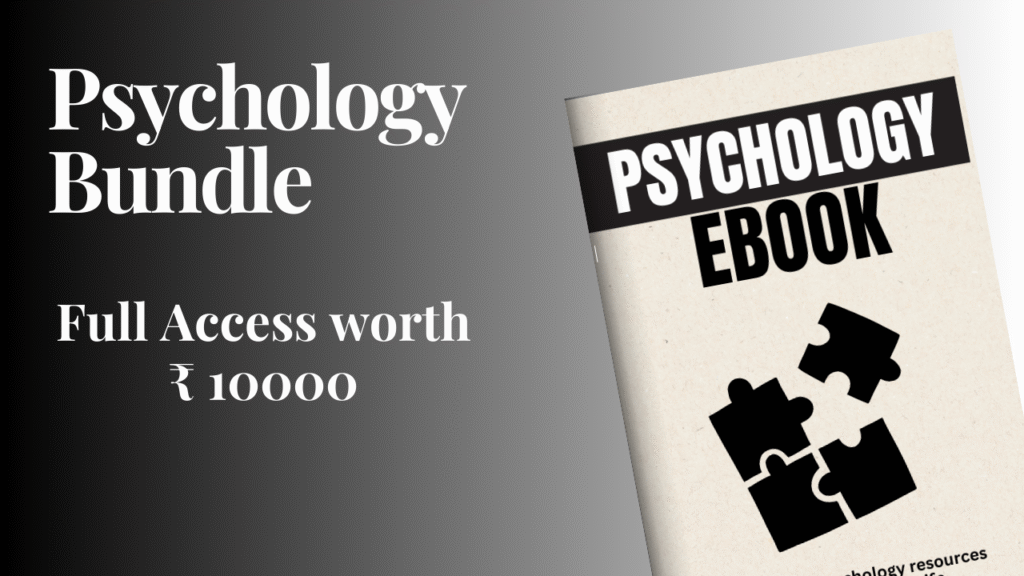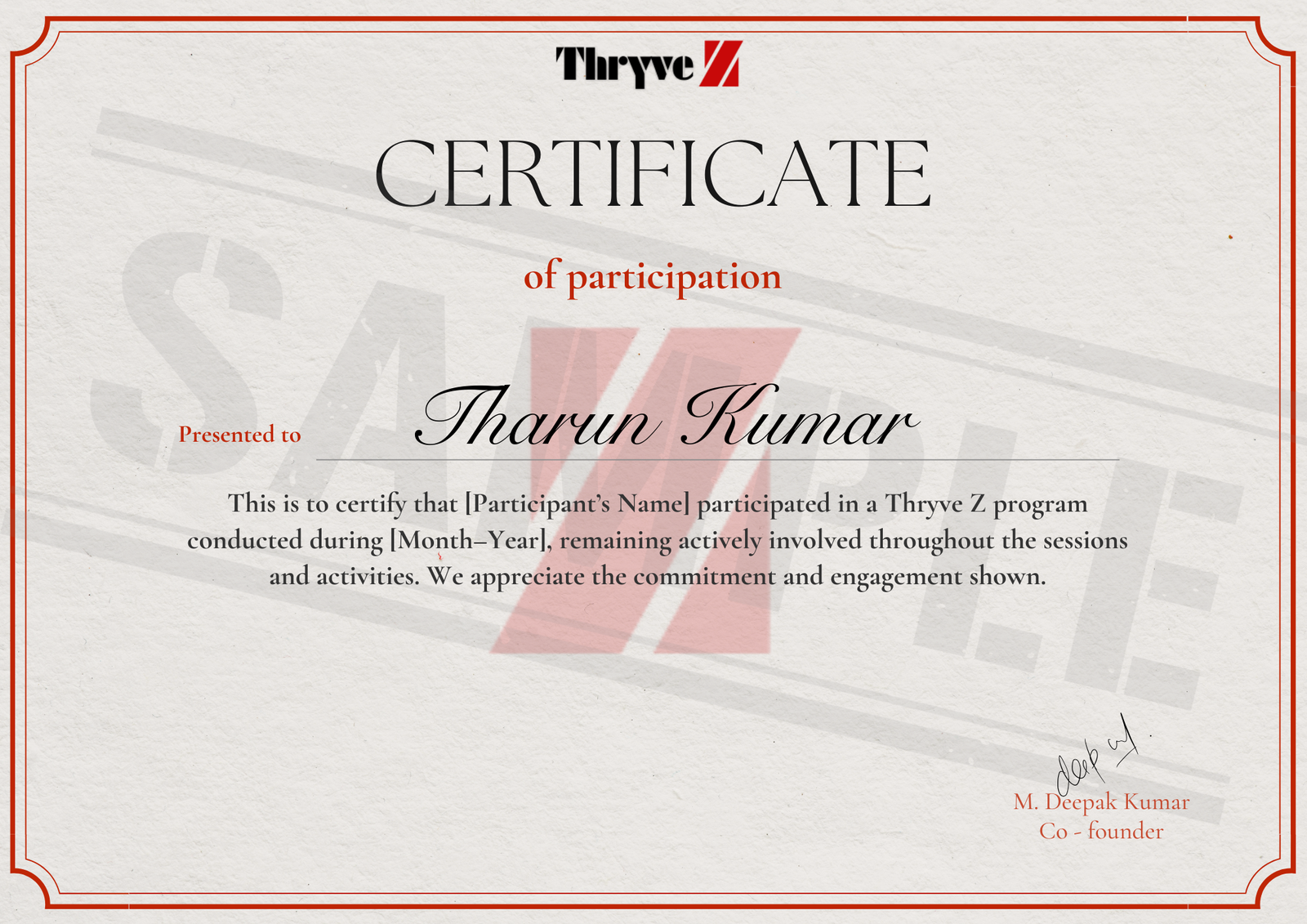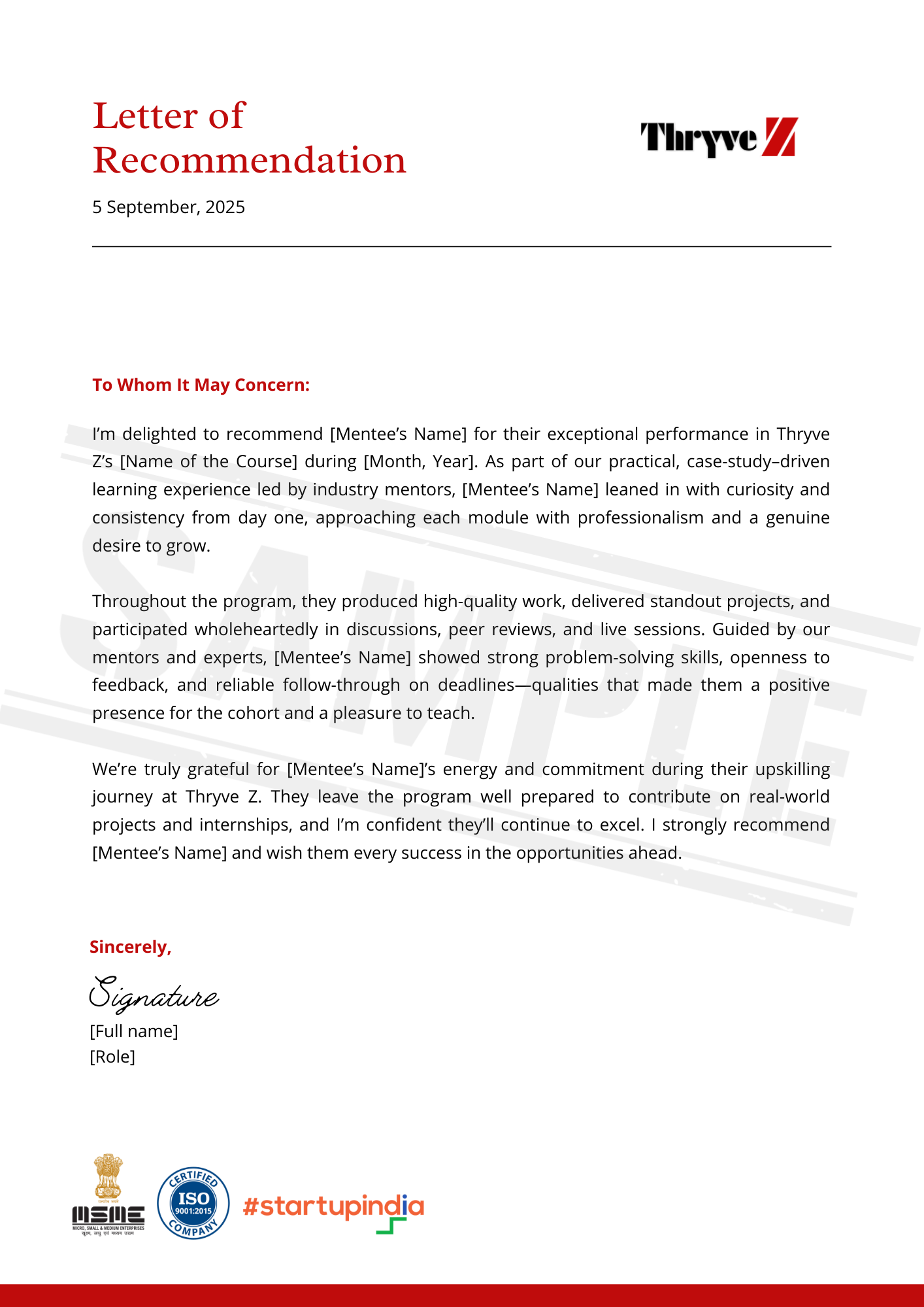








Jivisha Dangi
Jivisha is a Counselling Psychologist and Psychotherapist with almost two years of experience. She holds a Master’s in Psychology (Psychosocial Clinical Studies) from Ambedkar University, Delhi, and a Postgraduate Diploma in Guidance and Counselling from Jamia Millia Islamia. She is also an *Adult Fellow at the Washington Baltimore Center for Psychoanalysis*, where she is deepening her engagement with psychoanalytic thought and practice.
As a therapist and mentor, Jivisha believes in combining academic rigor with a reflective, human-centered approach to understanding the mind. Her work emphasizes curiosity, dialogue, and critical thinking, encouraging learners to not just acquire knowledge but to engage with it meaningfully. She brings her experience of working with diverse individuals and her grounding in psychoanalytic perspectives into her teaching, making complex ideas accessible, relatable, and thought-provoking.

Treats mental health conditions through therapy. Huge demand—India has just 0.75 psychologists per 100,000 people, well below WHO recommendations.
Guides people through stress and life issues. Mental health awareness rose by 45% in India over the past 5 years, boosting demand rapidly.
Improves workplace productivity and well-being. 60% of Indian corporates now invest in employee mental health programs, increasing I/O psychologist roles.
Supports students’ learning and emotional needs. Over 70% of urban Indian schools are integrating mental health services, driving demand.
Focuses on children’s mental health. India’s population under 14 is nearly 28%, highlighting a vast need for child psychological services.
Studies brain-behavior links. India’s neuro-rehabilitation market is growing at over 12% CAGR, expanding the demand for specialists.
Works in legal/criminal investigations. Forensic psychology roles have grown by 30% in the last decade alongside India’s justice system reforms.
Boosts athletes’ mental performance. India’s sports science sector is expanding at 15% annually, creating new opportunities.
Conducts studies in academia or firms. India’s research expenditure rose 11% in 3 years, widening roles in psychological research.
Enhances work culture and resolves issues. 80% of large Indian firms now employ psychology-trained HR professionals for talent management.
Debunk “mind-reading” myths and set expectations while mapping core branches (clinical, counseling, social, cognitive, developmental, organizational) and what they study.
Connect cognition, emotion, motivation, and habits to daily choices and relationships; read Indian proverbs, parenting styles, and collective values as psychological data.
Distinguish a core self from situational roles; use Winnicott/Freud ideas to examine authenticity, defenses, and how contexts shape
See how early caregiver bonds influence regulation, intimacy expectations, and enduring adult patterns.
Decode familiar sayings/practices to identify the underlying psychological principle.
Log real moments where you spot a principle (bias, reinforcement, norm).
Interview a parent/grandparent (35+) about shifts in self-view from youth to now.
Understand heuristics, stereotypes, and attribution errors, and how group identities, hierarchies, and family expectations skew judgments.
See how curation, echo chambers, and virality shape attitudes; practice critical consumption and source triangulation.
What emotions are, their functions, and how cultural scripts influence which emotions are acceptable to feel or show.
Apply CBT and mindfulness tools while accounting for Indian norms like restraint, “saving face,” and family honor.
Analyze persuasion/conformity episodes in an online community or public setting.
Capture 3 examples and label the mechanism (e.g., normative influence).
Track triggers, intensity (0–10), strategy used, and outcomes; design a personal plan.
Define “abnormal” (distress, dysfunction, deviation) across cultures and learn plain-language overviews of anxiety, depression, trauma, and psychosis.
Explore privacy, cost, and family-image barriers; identify practical actions that encourage help-seeking.
Demystify therapy as collaborative, goal-oriented work; compare psychodynamic, CBT, humanistic, and integrative modalities.
Practice active listening, empathy, boundaries, and supervision habits that protect clients and practitioners.
Same symptoms, different cultural interpretations; spot bias and risk.
IG-style slide(s) explaining a mental-health topic for laypeople.
Short vignette + proposed first-line approach + two starter goals.
Link secure/anxious/avoidant styles to patterns in conflict, closeness, and boundaries across love, friendship, and family.
Survey clinical, counseling, research, and applied paths (UX, HR, consumer, sports, health) and the kinds of work they involve.
BA/BSc → MA/MSc → MPhil/PhD; licensing basics and choosing programs that fit goals.
Plan internships, volunteering, and research assistantships; practice outreach that feels natural and respectful.
Take a validated quiz; write two “if-then” plans for future situations.
Clarify your “why,” pick 3 role models, 3 skills to build, and a 90-day action plan.
Why and how creators manage impressions online, and likely effects on creators/audiences.
How social norms and conformity shape choices; note pressures and protective buffers.
Trust, access, stigma, and meaning-making; where collaboration with mental-health services fits.
Practical adaptations for Indian norms while maintaining ethics and effectiveness.






Find quick answers to common questions about our AI-powered courses in Data Science and Psychology. Explore details on enrollment, learning process, certifications, career support, and more in our FAQ section.
Our courses are led by experienced educators and licensed psychologists, combining academic expertise with practical application.
Flexible options include live interactive classes, recorded videos, and practical workshops accessible online anytime.
The curriculum is aligned with national academic standards, examination requirements, and current trends in psychology.
We provide prompt support through live chats, regular Q&A sessions, and dedicated webinars.
Students get assignments, case studies, and personalized feedback to aid learning.
No prior knowledge in psychology or related subjects is required. Our courses start from the basics to ensure everyone can follow and succeed.